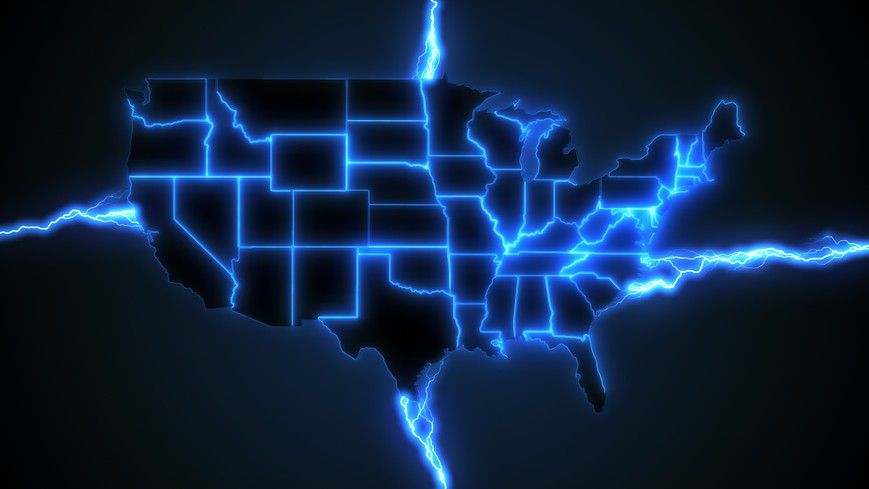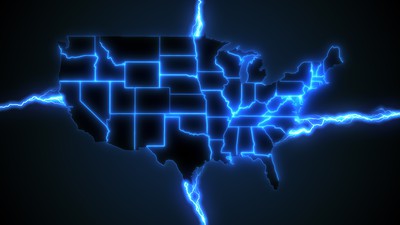

Right now, online poker is legal in eight US states — but it’s only available in four.
Online poker players in Michigan, Nevada, New Jersey, and Pennsylvania are the lucky ones. Their counterparts in Connecticut, Delaware, Rhode Island, and West Virginia? Not so much.
Although the reasons vary for why there is no online poker in the latter four states, three of them have something in common — in Delaware, Rhode Island and West Virginia, the regulator in charge of igaming is the state lottery.
The state lotteries in Delaware and Rhode Island awarded an igaming monopoly to a single operator. And in Connecticut, it is a duopoly, with licensing open to just two tribal casinos, which can each partner with a single online provider.
It’s a broken model that needs to be replaced, especially if players and operators alike hope to restore US online poker to its former glory pre-Black Friday, nearly 13 years ago.
Indefinite Poker Blackout in Delaware
Online poker in Delaware should serve as a cautionary tale. Ten years after awarding its exclusive igaming contract to 888 Holdings, the Delaware Lottery invited operators to bid on the contract when it came up for renewal last year. Another 10-year term was up for grabs.
There weren’t many takers. In the end, Rush Street Interactive (RSI) won the contract by default when 888 withdrew its bid last May.
RSI continues to work on Run It Once (RIO) poker, the platform it bought in March 2022. Since RIO was still in development last December when RSI took over as the Lottery’s igaming provider, Delawareans lost their ability to play online poker.
It’s unclear how long the blackout period will last.
Although RSI has said that it plans to launch online poker in Delaware at some point, the operator is very unlikely to launch RIO in Delaware first. This is because Delaware is a small state and RIO would not be successful without support from other states, particularly Michigan and New Jersey.
Michigan and New Jersey are both members of MSIGA, but more importantly they are larger markets that are big enough to give RIO enough players to help it compete against more established rivals — BetMGM Poker, PokerStars, and WSOP.
We expect RSI will offer online poker in Delaware after it has launched the platform in bigger states. But the current blackout period illustrates the downsides of having a single operator with oversight by a state lottery — the operator could leave and be replaced by another with fewer products on offer, and the lottery might have online casino and sports betting (but not online poker) top-of-mind during a switch-out of operators.
Online Poker Inactive in Three Other States
Other states where online poker is legal, but unavailable, also made missteps.
In Rhode Island, state lawmakers awarded Bally’s Corporation, which owns and operates the only two land-based casinos in the state, a monopoly on igaming as well. But lawmakers erred when they included verbiage in the state’s gaming law requiring live dealer for online poker — which is a product that doesn’t exist.
Next door in Connecticut, the state’s Department of Consumer Protection (CDCP) signed off on plans to allow two tribal casinos in the state to offer online poker, casino gaming, and sports betting — while the state lottery could partner with a single operator for sports betting.
But the tribal casinos picked DraftKings and FanDuel as their igaming partners — two operators without a poker platform. And state law prohibits a different operator for the online poker vertical.
Finally, the West Virginia Lottery serves as the gaming regulator in the Mountain State. There aren’t any operators there currently, but that has more to do with the fact that the state is small and wasn’t (until recently) in a multi-state gaming compact for poker. It joined one, MSIGA, last November.
At least West Virginia had to clairvoyance to make sure the state’s online poker market wasn’t a monopoly for one operator. And for that reason, we expect online poker in WV to go live this year.
Online Poker in the US: Monopolies vs Open Markets
| State | Monopoly | Online poker details |
|---|---|---|
| Delaware | Restricted to 1 software provider | ❌ Exclusive igaming contract awarded to 888 Holdings, now transferred to Rush Street Interactive. Operates across three brands. Online poker currently unavailable. |
| Michigan | Open | ✅ Multiple operators active since launch. |
| Nevada | Open | ✅ At least one active online poker site since launch. |
| New Jersey | Open | ✅ Multiple online poker sites active since launch. |
| Pennsylvania | Open | ✅ Multiple online poker sites active since launch. |
| Rhode Island | Restricted to 1 | ❌ iGaming monopoly awarded to Bally’s Corporation, online poker regulated but not expected to launch. |
| Connecticut | Restricted to 2 | ❌ Online poker legal but unavailable as tribal casinos chose partners without poker platforms. |
| West Virginia | Open | ❌ Legal but inactive. Expected to go live this year after joining MSIGA. |
Competition a Better Option
In comparing the four states with legal real money online poker with the four states where it’s legal but not available, one thing is clear — competition is better for states, the industry, and players.
New Jersey has had multiple online poker operators for more than a decade. Pennsylvania online poker players have four online poker rooms to choose from. There’s a choice of three Michigan online poker apps, and more may be on the way.
Competition ensures that there won’t be a blackout like the one going on now in Delaware.
Sadly, it looks like some states have still not learned that lesson. Consider that a bill was introduced in Hawaii last month to allow a single operator to launch online poker and sports betting in the state.
That, unfortunately, sounds familiar.

